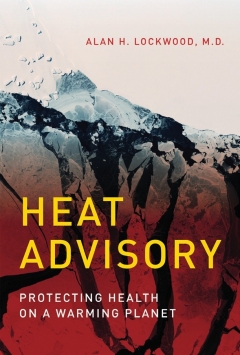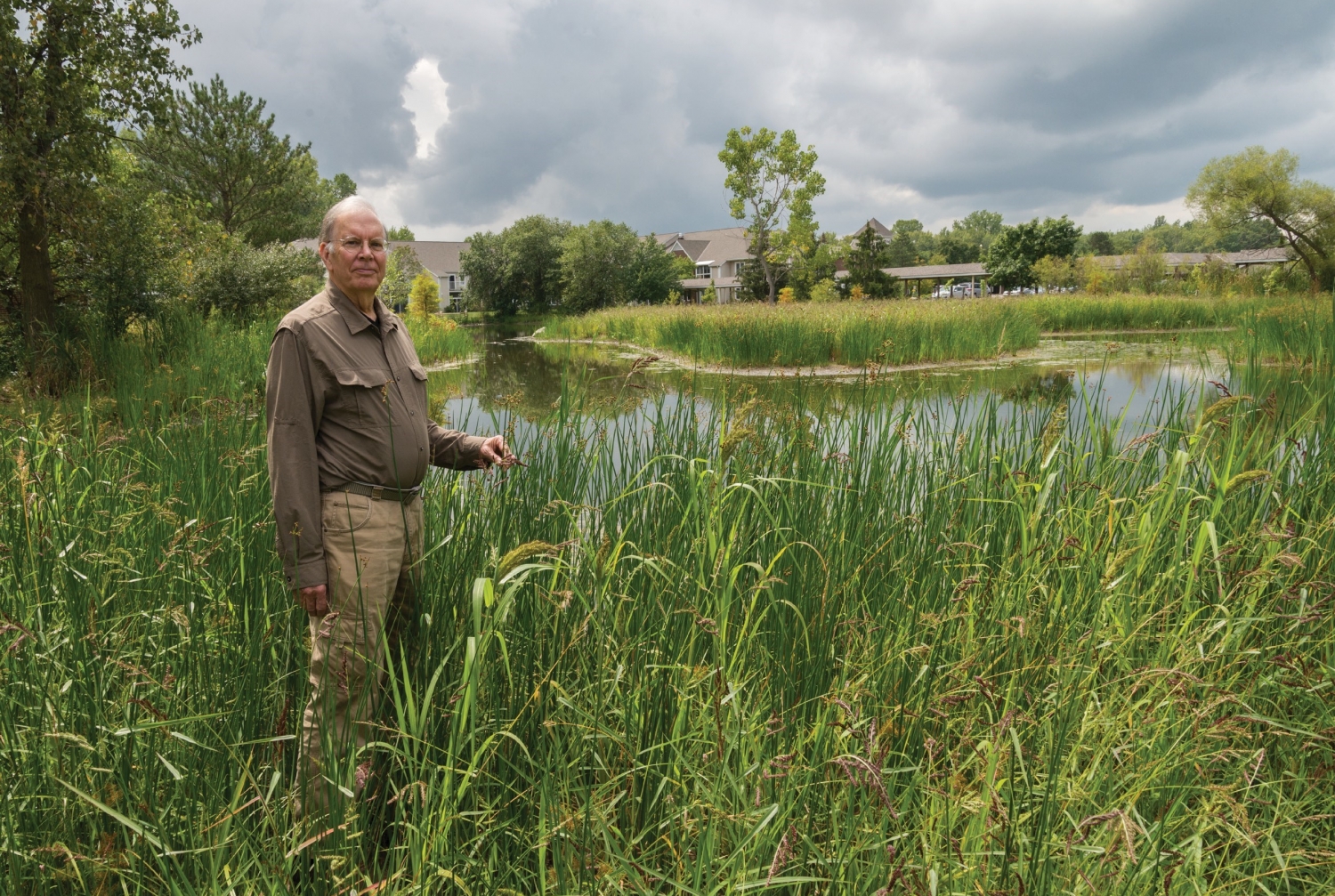Today’s headlines can seem a grim litany of disasters, from hurricanes in the Atlantic and epidemics in South America to conflicts in Africa and droughts in the Midwest. For Dr. Alan Lockwood ’65, MD ’69, though, these calamities all have two things in common: they’re rooted in climate change, and they’re signs of public health crises that the medical profession—as well as other scientists, policymakers and citizens around the world—must address.

"Heat Advisory: Protecting Health on a Warming Planet" by Dr. Alan Lockwood.
In his book "Heat Advisory: Protecting Health on a Warming Planet", the physician-scientist offers a rigorous examination of the evidence for climate change and an overview of global warming’s many consequences for human health. Published by MIT Press, the book begins with a primer on the science of greenhouse gases and their impact on weather worldwide. Then, chapter by chapter, Dr. Lockwood offers data on infectious diseases like malaria and dengue, carried by mosquitoes that flourish as temperatures rise; respiratory and cardiovascular issues caused by pollution from fossil fuels and drought-driven wildfires; and violence sparked by the scarcity of resources like food and water. Dr. Lockwood draws upon sources ranging from The Lancet and other medical and scientific journals to reports from the United Nations, the World Health Organization and the Centers for Disease Control and Prevention to make the case that climate change is already affecting human health worldwide.
Packed with charts and tables, "Heat Advisory" is clearly the work of a research scientist—but its passionate and sometimes personal call for action embodies the voice of a physician who sees addressing global warming as a mandate of his Hippocratic oath, especially in an era of science and climate change denialism. “The untold story of climate change is that every aspect of it impinges on health in some way,” says Dr. Lockwood, emeritus professor of neurology and nuclear medicine at the University of Buffalo’s Jacobs School of Medicine and Biomedical Sciences. “As physicians, we have a responsibility that goes beyond just taking care of the patients in our offices. Sometimes we must bring our expertise to bear on issues that may be political, too.” It’s a perspective, Dr. Lockwood says, that grew out of his early studies in ethics and philosophy as a “double Red,” an alumnus of both Cornell’s undergraduate College of Arts and Sciences and its medical college. After a residency in Weill Cornell Medicine’s neurology department, Dr. Lockwood took his first faculty post at the University of Miami, where he met a number of students involved with Physicians for Social Responsibility (PSR). He soon joined the organization and became actively involved as a speaker and researcher on its core concerns—nuclear weaponry and energy, environmental toxins and climate change—and served a term as its president in the mid-90s.
In 2009, Dr. Lockwood helped PSR produce a white paper on the adverse health effects of energy production from coal, which led to his 2012 book, "The Silent Epidemic: Coal and the Hidden Threat to Human Health," also published by MIT Press. That volume documents pollution-related deaths from lung cancer, asthma, chronic obstructive pulmonary disease and other conditions. He says that his experiences touring and talking with audiences about it revealed a need for a larger conversation about how environmental factors affect public health. In "Heat Advisory," Dr. Lockwood outlines a model for addressing global warming and its health impacts that’s analogous to disease prevention in medicine. “To prevent heart disease, for example, you look first to diet and exercise; then you might prescribe a drug to control cholesterol,” he explains. “The primary prevention of the health effects of climate change would be to reduce greenhouse gases, while the next steps in minimizing its impact could include a vaccine against dengue.”
While diseases like dengue and malaria may seem like distant threats in the United States, Dr. Lockwood cautions against thinking that the developed world isn’t already experiencing public health issues driven by climate change. He points out that heat is the leading weather-related cause of death in this country, with an average of more than 100 people dying from heat stroke and related conditions each year. The severe storms that struck parts of the United States in 2017—whose intensity, he notes, reflects the predictions of climate change scientists—had effects beyond their immediate physical and psychological impact; for instance, IV bags had to be rationed after Hurricane Maria shut down a major manufacturer in Puerto Rico. And the consequences of global warming will continue to affect Americans in ways that may not be immediately obvious, Dr. Lockwood says. For example: “By the end of the century, without any changes in greenhouse gas emissions patterns, the yield of corn—the most valuable commodity in the United States— is likely to fall by as much as 80 percent. That will affect world food prices, but it will also create poverty and food insecurity here at home, both of which impact health.”
The political challenges of addressing climate change have only grown since Dr. Lockwood completed the book in 2016, before the election of a presidential administration committed to rolling back many environmental agreements and policies. Because he believes strongly that the medical community—both collectively and individually—can shift how lawmakers, the media and citizens view global warming, he urges physicians to advocate for climate change solutions, be it through philanthropic funding, letters to elected officials or even running for public office. “Make the most of the expertise and authority you have as a physician,” he says. “The national conversation may be daunting and difficult at the moment, but we can’t throw up our hands and say there’s nothing to be done. It’s more important now than ever for those of us who have devoted our professional lives to human health to speak up and take action.”
— C. A. Carlson
This story first appeared in Weill Cornell Medicine, Vol. 17. No. 2

